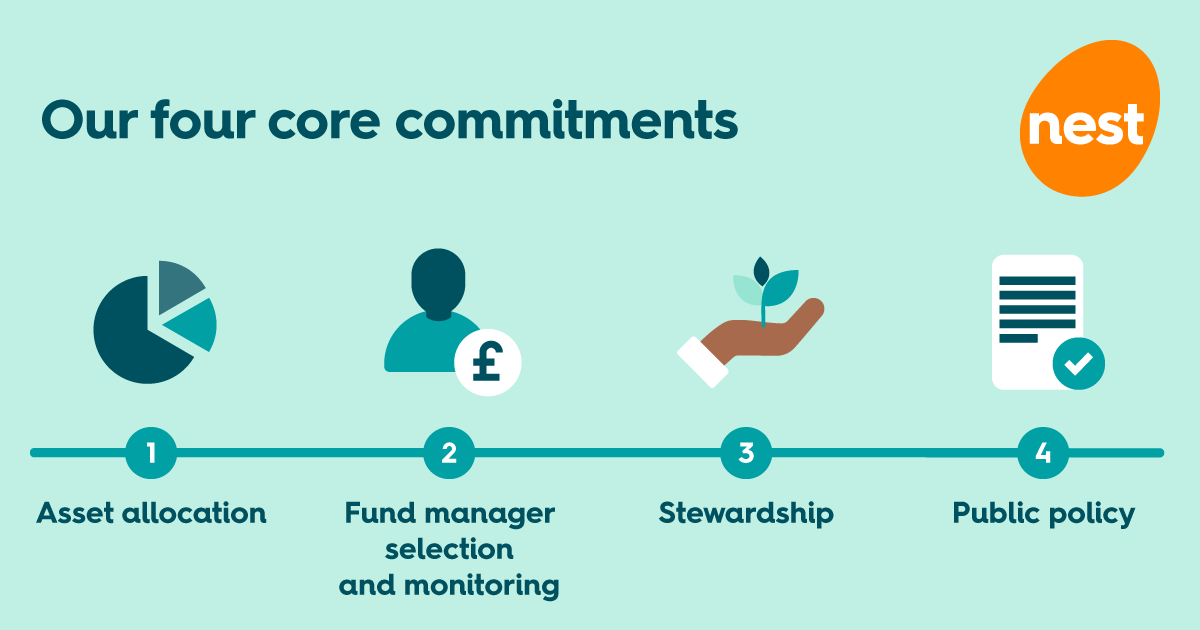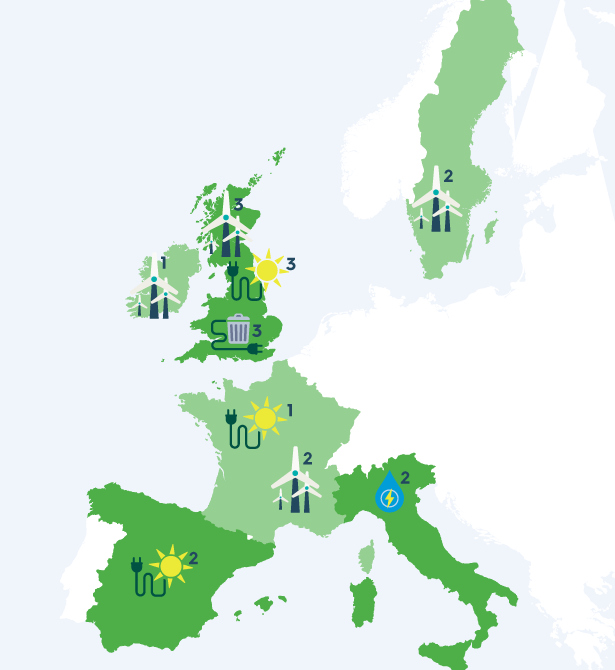This year, we’ve seen some of the devastating consequences climate change can have, from floods in Pakistan to record-breaking temperatures in the UK. And the frequency and impact of these types of extreme events only appear to be increasing.
We know the physical impacts of climate change will affect our members’ investments. Nest therefore has a responsibility to contribute to the transition to a low-carbon economy in ways that will not only protect our member’ money, but also allow our members to sustainably grow their retirement pots through opportunities that transitioning can bring.
In July 2020, we took a big step by publishing our climate change policy. We publicly set a target to align our investment portfolio with limiting global warming to 1.5C by reaching net zero emissions across our portfolio by 2050 or sooner. We knew that it wasn’t as ‘simple’ as divesting all carbon-intensive assets, but more that we needed to be more forward-looking and dynamic in our approach. That’s why we developed four core commitments to achieve this:

Asset allocation
We knew we had to start with where our members’ money was invested so one of our first steps was to divest from companies with more than 20% of their revenues coming from thermal coal production or power generation, oil sands and arctic exploration of oil and gas. And, going forward, we’ll not be investing in companies that are developing new thermal coal or oil sands projects. These companies won’t help us achieve a transition to 1.5C, and they’ll likely struggle in the long-term to transition in line with our net zero commitment, meaning they’ll neither be good for the planet or our members’ pockets.
Additionally, we know climate change presents an investment opportunity for our members. That’s why we’ve partnered with Octopus Energy Group to invest in renewable energy infrastructure. So far, we’ve helped our members invest in 20 green infrastructure projects across Europe, including a solar farm in Reading and an offshore windfarm off the Yorkshire coast. This allows our members to have a financial stake in the transition to a net zero economy by investing in the critical infrastructure needed to decarbonise the energy sector and wider economy, while also seeing a return on their investments.

Fund manager selection and monitoring
Nest prides itself on building lasting relationships with the fund managers that look after our members’ money. That’s why it was imperative that they join us on this journey.
We asked the fund managers we work with to set out how they’ll contribute to Nest’s climate change objectives such as;
- giving details on their climate commitments
- how they’ll assess and manage the impact of physical and transition risks on the portfolio
- how their investment strategy aligns with Nest’s long-term target of reaching net zero
We’ve continued to work with our fund managers to make sure they’re keeping to the climate change objectives we set for them in 2020. By 2023, we’ve asked all our fund managers to:
– work with companies to improve reporting of climate change metrics such as emissions data
– explore setting emissions reductions targets that are in line to reduce emissions to net zero
– as well as climate change scenario analysis and temperature stress testing
Stewardship
We believe that one of the most powerful tools investors can use to influence companies’ practices is stewardship. By working with other investors to encourage companies to commit to net zero, we have a better chance of limiting emissions globally.
To help speed up the transition, we continue to use our shareholder voting rights and work with other institutional asset owners to increase pressure on the largest carbon emitters and those who finance them.
We regularly have conversations with companies about how they’re aiming to meet the 1.5C global warming limit and how they will manage the impact the transition will have on their stakeholders, employees and the wider community.
Additionally, we support shareholder resolutions, where reasonable, that call on companies to share more information on how they manage climate change risks. We have and will continue to vote against companies’ management resolutions if they do not make adequate disclosures on climate change risks and opportunities, or if they fail to appropriately link their executive pay policies to climate change-related key performance indicators. And for every stewardship activity we will set time-bound milestones on which we expect the company to deliver over the short or medium term.
Public policy
Finally, we know that Nest alone can’t combat the devastating impacts of climate change, that’s why we knew we had to include a commitment to working with other companies to help use our collective power to enact change. We regularly have conversations with our peers on climate change issues. We also try to use our influence to improve disclosures on climate change risks and opportunities in the UK pensions sector and encourage policymakers to set further net zero emissions targets and credible strategies to reach them.
